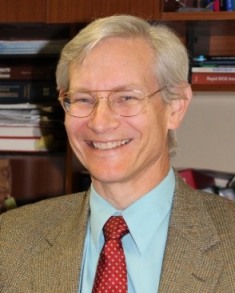Dr. Pretorius was interested in medicine as a small child, even before kindergarten, when he started studying anatomy and physiology with transparencies showing the relations of the body systems. In elementary school he read about every disease he could find in the encyclopedia. In high school, Dr. Pretorius was the salutatorian, finishing second to the valedictorian who had all A’s vs. Dr. Pretorius all A’s except a B in freshman English. With a keen interest in science, Dr. Pretorius decided to be a medical scientist and majored in chemistry at his dad’s alma mater, Louisiana State University, where he played on the freshman basketball team in the first year that Pete Maravich played on the varsity, and then biochemistry at the University of Southern California, where he graduated with a B.S. and would have played on the junior varsity tennis team except for being ineligible for out of conference transfer: the number one junior tennis player in the U.S. played last man on the varsity in those days at USC. Nearly always a quick learner, Dr. Pretorius had started school a year early and finished undergrad. in 3 years.
One of the highlights of Dr. Pretorius life was the telegram from New York University granting the then 19 year-old acceptance to the M.D.-Ph.D. program. He started the day after his U.S.C. graduation with the usual New York welcome to the facts of life: his scholarship didn’t start until the fall and he had to find a way to support himself through the summer. Although over 20 students were eventually accepted to the NYU M.D. Ph.D. program only 2 graduated in the prescribed 6 yrs. Dr. Pretorius was one of those. His work on DNA-protein biophysics was published in the Journal of Biological Chemistry including basic aspects of the fd bacteriophage, the first virus whose DNA was entirely sequenced and the basic building block of initial genetic engineering.
The oldest of 5 children who all eventually became doctors, Dr. Pretorius was fortunate to have a military scholarship and had the distinction of serving in two ROTC buildings, one at USC and one at NYU, which were completely burned by antiwar protesters. Then as now it was a challenge to train and then serve on active military duty, but Dr. Pretorius was fortunate: as a senior medical officer and U.S. Air Force Endocrinologist he survived stateside tours of duty in Biloxi, Mississipi and Fairfield, California, unlike one of his high school basketball teammates, a Green Beret, who lost his life in Viet Nam and another, who succumbed as a civilian to complications of renal failure. It was obvious that we are all lucky to have a chance to live our lives and Dr. Pretorius kept trying to make the most of his.
He met a beautiful Spanish woman in New Orleans and realized that there were no others like her: after a courtship conducted in her home of Barcelona and some of our favorite cities Paris, and San Francisco she said yes in San Diego nearly 37 years ago. Rosa Maria and Dr. Pretorius were blessed with two sons, the first born in New York City at the end of Rosa’s residency. During his private practice in Cincinnati since 1988, Dr. Pretorius had multiple landmarks including: assisting with bringing the first PET to this area, at The Christ Hospital, later putting the first PET in a his own Nuclear Medicine Practice in Blue Ash, founding a Neuroendocrinology practice in greater Cincinnati, and multiple notable discoveries including: the stimulation of human brain blood flow by omega 3 fish oil (which was patented with the late Dr. Chris Kircher, M.D.), the relationship between stroke risk for both overactive and underactive renal function, the extent of pituitary disease in patients with chronic traumatic brain injury and its relation to brain blood flow and metabolism, noninvasive measure of liver function in patients with diabetes and other diseases that increase cardiovascular risk and new methods to analyze brain function with functional SPECT and PET scans that correlate as well with cognition as any others ever discovered.
Despite these achievements, Dr. Pretorius is approachable and not pretentious. He welcomes patients from any walk of life and is happy to share the excitement of new projects with students of all ages. He plans never to retire, but will work as long as he has the chance to continue and is blessed to have a young and able staff who work tirelessly with him.

Member of following Professional Societies
